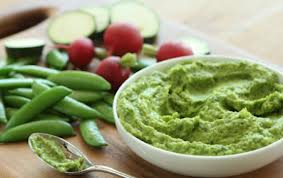Sugar vs. Salt: What’s Worse for Blood Pressure?
1. Salt:
- Consuming too much salt, especially in people who are salt-sensitive, can directly lead to an increase in blood pressure by causing fluid retention in the body. This increased fluid volume puts more pressure on the blood vessel walls, leading to elevated blood pressure levels.
- High sodium intake also interferes with the body's ability to regulate blood pressure by affecting the renin-angiotensin-aldosterone system, a hormonal pathway that helps control fluid and electrolyte balance in the body.
2. Sugar:
- Added sugars, found in many processed and sugary foods, contribute to weight gain and obesity. Carrying excess body weight is associated with an increased risk of high blood pressure.
- Sugar consumption can lead to insulin resistance, a condition where the body becomes less sensitive to the effects of insulin, a hormone that helps regulate blood glucose levels. Insulin resistance can indirectly contribute to high blood pressure by altering the activity of the renin-angiotensin-aldosterone system.
- High sugar intake can also lead to inflammation, oxidative stress, and endothelial dysfunction, all of which can contribute to long-term changes in blood pressure regulation.
In summary, while salt has a more direct and immediate impact on blood pressure, excessive sugar intake can also indirectly contribute to high blood pressure, particularly in the context of poor overall diet and lifestyle habits.
-
Satisfy Cravings with THESE 9 Snacks (Hello dark chocolate)
Do you snack during the day?I’m definitely more of a grazer — e
-
How Words with Friends Can Help You Lose Weight
Bag of Doritos calling your name? Keeping your brain busy can help yo
-
(Fork) Size Matters
Stick a big fork in it—your overeating days are done. That’s the surpr
-
The Truth about Waist Training
It starts with the Kardashians and Jenners, the Borg Collective of unm
-
The Worlds Best Vegetarian Protein Sources
Last week we covered what we thought to be the 10 worlds best protein
-
Weight-loss Strategies
Flip through the pages of dieting history -- hey, theres a riveting re
- Men Lose Weight
- NEW STUDY: Why Lack of Sleep Makes You Fat
- Stick to your weight loss goals with this Abs Diet home workout
- Counting Calories for Weight Loss
- Clean Up Your Diet—Today!
- Easy Lunch Box Upgrades
- Ricky Gervais Wants Respect:
- Lose Your Gut without Hating Your Life
- Can You Catch Obesity?
- The Best Diet to Keep Weight Off
- 10 Easy Ways to Lose Weight



